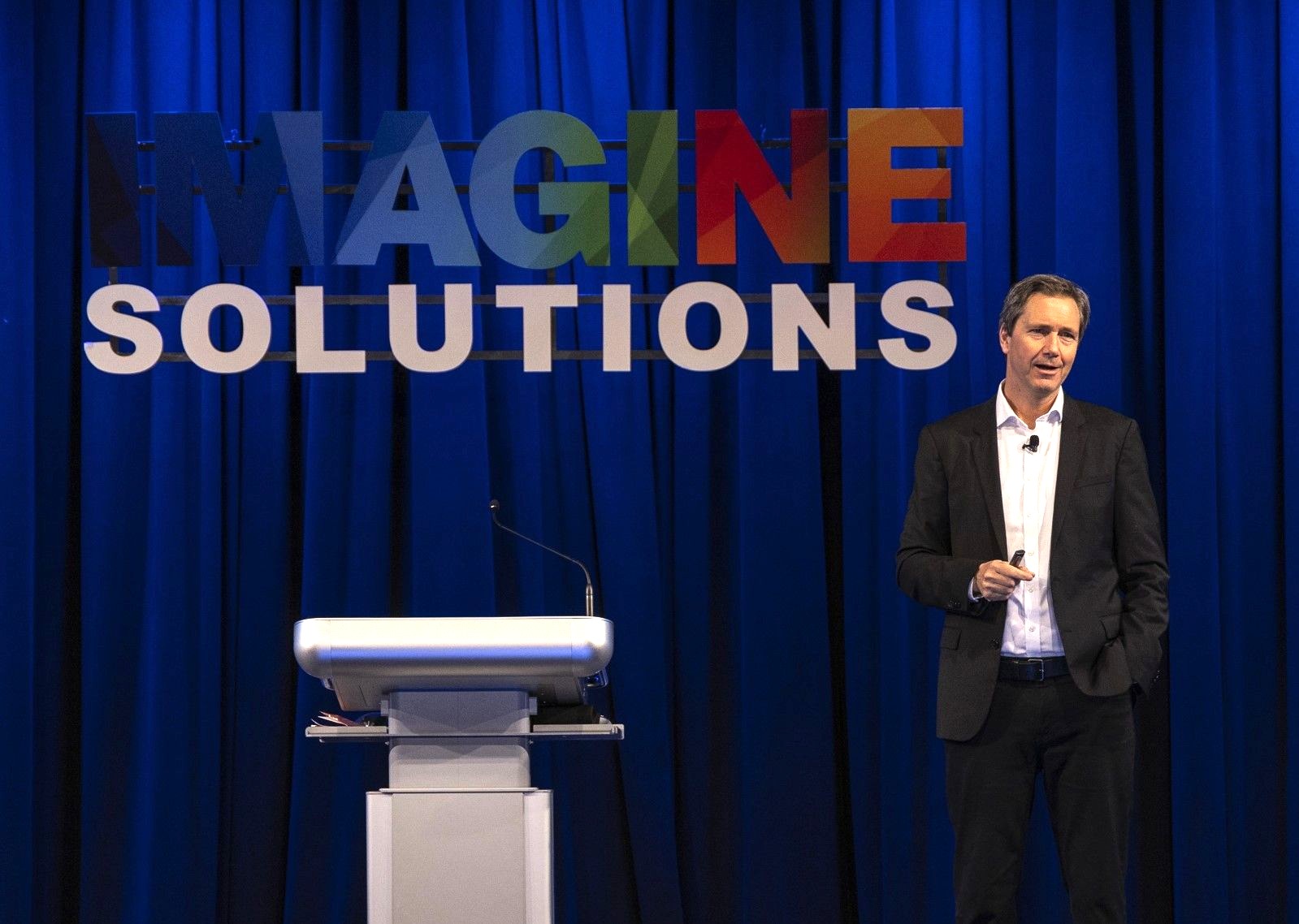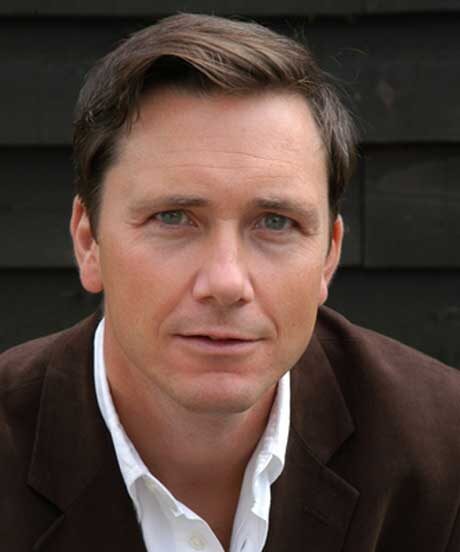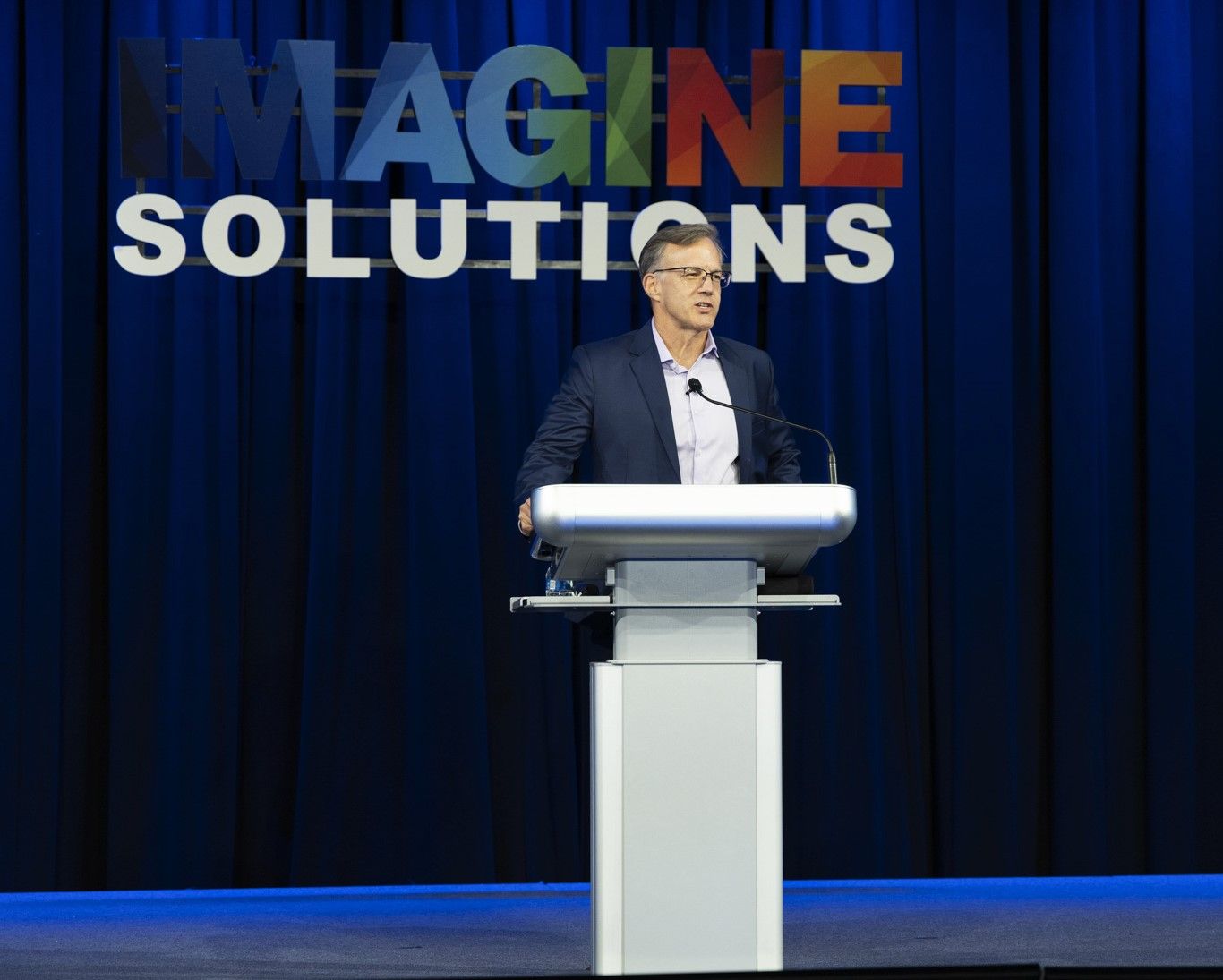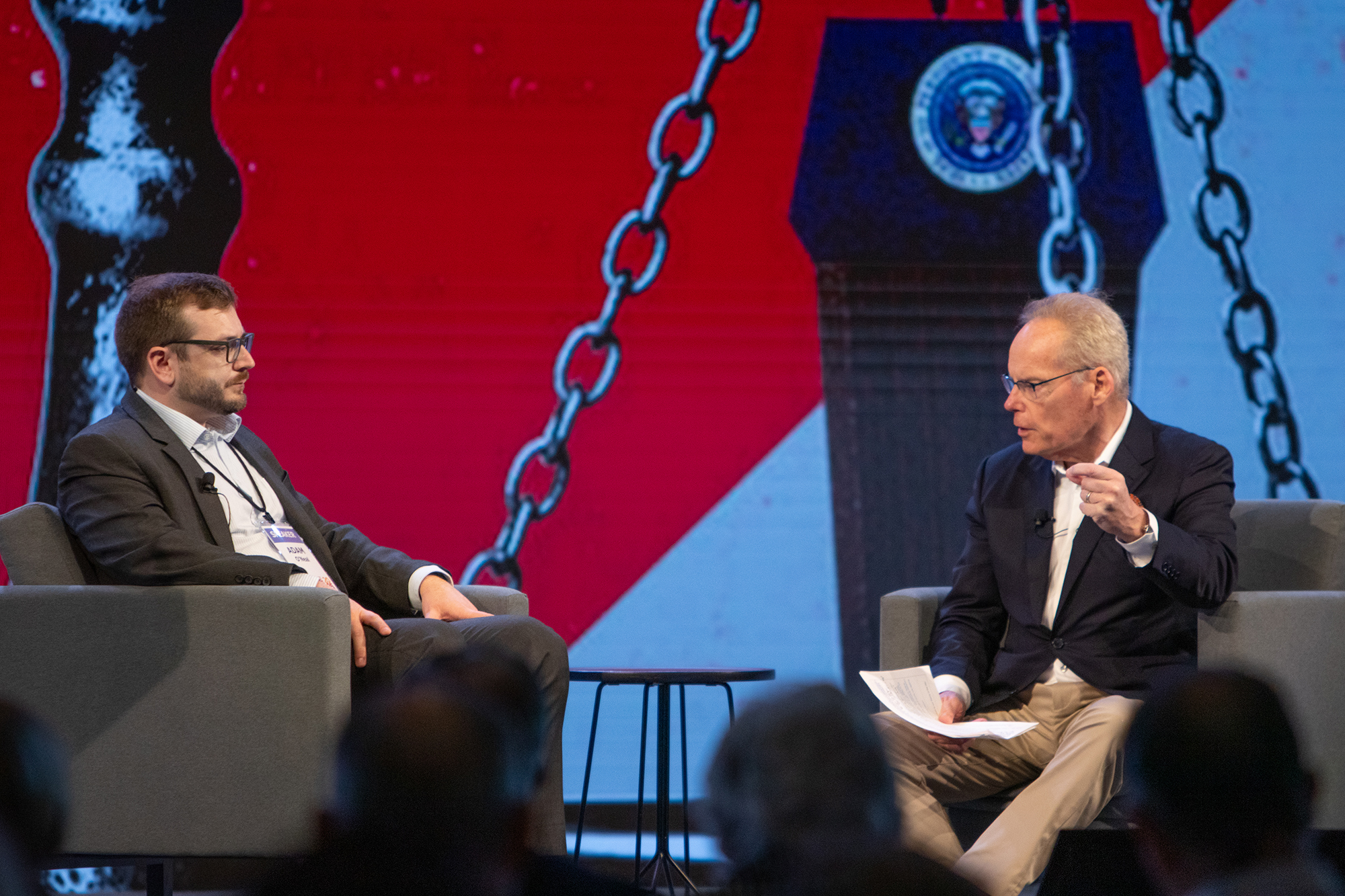Why the Modern Male is Struggling
00.00
[Music] [Music] Richard Reeves of the Brookings institution has written a ground breaking breaking book on the state of men today it is called of boys and men with a nod to Steinbeck I suppose and it explores the rapid economic psychological social and educational decline of males in our society please Welcome to our stage Richard [Music] Reeves hey thank you for that welcome it's great to be here um let's spare a thought for me right now I am sandwiched on the schedule between the genius Revolution in
01.00
medicine and the world's hottest AI artist and I am talking about demographics and population Dynamics so let's beare a thought for you as well because you're the one that's going to have to sit through this for the next 20 minutes and know you're always told not to start with something self-deprecating but given those titles that I'm having to be sandwiched between it seems appropriate the second thing to get out of the way is if you're detecting an accent you're right I'm from east Tennessee I am from East Tennessee I live in Butler Tennessee I'm half English half Welsh US citizen UK citizen lived in DC for 10 years at Brookings now live in East Tennessee um and I'm I am going to talk about social science uh and I'm going to talk a little bit about the need to focus on boys and men which is something that needs a bit of justification uh in the current climate and to imagine some solutions to the problems being faced by boys and men in health care and education is
02.00
something that the word imagine is appropriate for because we're still at a stage where we're coming to terms with the fact that there are some problems that are specific to boys and men as well as many ongoing problems that are specific to women and girls and part of the problem the current debate about gender and gender equality in the US and elsewhere is that it's framed as a zero sum game the mere fact of talking about boys and men runs the risk of making you sound like you're not concerned about women and girls it's as if we're not allowed to think two thoughts at once it's as if the parent of a son and a daughter is only allowed to care about one of them it's as if we're not able to look at the world and say there's a bunch of areas where women are still struggling and where we need to do more work on behalf of girls the gender pay Gap the underrepresentation of women in leadership in politics only one in four members of US Congress are women I I hardly need to tell you that we've yet
03.01
to have a woman president in the US whereas I grew up under a female prime minister in the UK my wife is currently trying to raise money for a startup a health a nutrition and health startup and so I'm obliged under the terms of my marital contract to point out that only 2% of venture capital money goes to female Founders so the idea there isn't still a lot more to do for women and girls and of course we're at the beginning of women's history month and so it's an appropriate time to make that point but it is also true that there are problems now facing boys and men in mental health in education and in family life and we have to start imagining some solutions to those alongside the ones we already have for women and girls now we obviously are here on relatively short timelines which is great the last time I spoke for 20 minutes I got the feedback forms afterwards and you know sometimes people share you'll probably do the same thing
04.01
here where you be asked to give feedback on speakers and I got one and it said if I only had 20 minutes left to live I would choose to spend it listening to Richard Reef's speak and then I turned it over and it said because it would feel like a lifetime people are funny aren't they all right I'm going to give you some charts I AP apologize in advance but I've already suggested why we should focus on boys and men a really really really why when I explain what I'm doing especially as I was at the Brookings institution and I've worked on inequality the middle class racial Justice really boys and men why well here's the book that's the plug here's the think tank I'm the guy that looked out of the world and said you know what we need another think tank we don't have enough think tanks but in this case the American Institute for boys and men which I founded last year is the first and only Think Tank focused
05.01
on the issues of boys and men and we're focusing on education and mental health to start with we have a strong focus on the intersection with race and black boys and men uh and then we're looking at employment and fatherhood going forward so please check out our website we're very new and we're a scrappy startup and many of you know what that feels like it's partly autobiographical these are my three sons all in their 20s now 27 24 and 22 I think it changes all the time but I'm pretty sure that's right and this is them in North Wales uh just behind them is the Slate mine and Blinder fog where my family have worked for the last eight Generations uh and they went down to see uh to see where their great great great great grandfathers had worked um so this was last summer but also the discussions of boys and men has been part of our family conversation it's been around the dinner table it's been something that we've been focusing on in school I want to be clear that most of my focus is on workingclass boys and men and black boys and men my boys by and large are doing
06.00
okay right now but I'm here as a father as well as a policy wonk but it's also for this reason I was a guardian journalist for many years and CP Scott the founder of the Guardian said this comment is free which is still the name of the Guardian ored page but facts are sacred and so many of these debates about gender and gender equality and boys and men women and girls they sort of float free of the facts or rather you can just go and find the facts that suit your Prejudice online and it's the same in policy too many of you probably heard the phrase that we're going to have evidence-based policym hands up who's heard that phrase evidence-based policym right and how often do you think we actually get policy based evidence making I've done this you better find me some evidence that it's working so I'm determined that we will be as factually accurate as we can in what we're doing balance nonpartisan and stay away from some of the frothier subjects that I think are dominating the debate about gender and talk instead about some of the harder facts I'm going to start with
07.00
mental health say a little bit about each of these just in the time I have with you today so let's start with mental health which is obviously a very hot topic right now especially among young people many of you I know work in this field so let's start with the the very sobering trends that we see in suicide rates so I'm going to show you here is rates per 100,000 in 199 and 2022 for women and girls in these age ranges from from the youngest to middle age up there and you can see the rise in the suicide rate among these groups of women um and girls during that time period the US is relatively unusual in seeing these Rising suicide rates uh and this is something that's quite rightly getting plenty of attention um and this is the picture for boys and men over the same time period And so what you can see is that there have been very significant Rises especially among young men over that time period in fact for since 2010 the suicide rate among young men those under 35 has risen by a third in the US now these are rates and sometimes it's hard to understand rates
08.01
so let's put it in absolute terms last year the US uh and I should say the suicide rate is four times higher for men and boys than it is for women and girls at every age range it varies a little bit by age but the basic the overall story is it's four times higher so male suicides account for 80% of the suicides we see in the US last year there were 50,000 losses of life to Suicide that compares to 40,000 roughly for breast cancer so that's to give you a sense of it so we lost just as I'm not comparing them in any way other than simply to give you a sense of the scale of course but we lost about as many men to Suicide as we did women to breast cancer last year so these are just just just a way of saying these this is a massive public health issue um but it's one I think that we're struggling a little bit with in terms of understanding that there are also huge issues with teen girls mental health which many of you may have heard about there's a very good self-report survey from CDC which is showing Rising
09.00
sadness suicidal ideation Rising among girls in particular that is a huge problem and one that we are quite rightly addressing at the same time massively Rising suicide among men and young men in particular and in the spirit of thinking to thoughts at once I think it's important to note that the Affordable Care Act quite rightly in my view covered screening for anxiety with no cost for women and girls but does not cover it for boys and men now that's no one's fault it's not because the Obama White House was taken over by a bunch of woke feminists who hate boys and men it was the result of an inadvertent policy shift in the way that the ACA was set up with the a very good preventive Health Service for women but it seems to me that if we take this Mental Health crisis seriously the idea that we would be covering screening for one sex and not for the other is simply not justified by the data that I'm showing you now now some of you all know the education Trends so I won't spend too much time on
10.00
the gender gap in college degrees you will have read about this you will have heard about this but let's just put some numbers on it in 1972 7172 uh about 43% of Bas went to women we passed Title Nine about then of course to try and help women women pretty rapidly caught up with men which was the hope and the expectation if we took the breaks off women's educational performance but then the lines just kept going until now 58% of ba is going to women and rising and so the takeaway here is that the gender gap on us college campuses today is a little bit wider than it was in the 1970s when we passed Title 9 but it's reversed which is not something anyone expected or planned for and frankly I think we're still getting our head around this I think it's really hard when things change this quickly to start saying hold on gender gap in education means boys and men gender equality means focusing on boys that's I find that really hard right because it's it's like the the the compass switch around North and South right and so I think it's
11.01
really difficult for us to update our prior but it is very important and I will say that there's two elements to this which are for those who are in higher education to know about half of this difference in degree acquisition between men and women is in enrollment and the other half is in completion so since 2010 there's been a drop of 1.2 million in college enrollment in the US and a million of that is men so of the 1.2 million drop a Millions men so cratering male college enrollment but even conditional on enrolling men are much less likely to complete College much less lightly in fact when you control for all the other variables that you'd want to this the biggest risk factor for starting college but not finishing is being male and so we have an enrollment crisis and a completion crisis and it's something that the higher education sector I think is really starting to come to terms with certainly in our work now we're creating a network of higher education institutions they see this
12.00
happening in real time but why would you see that why would you see such a big gap in higher education it's mostly predicted by what's happening in high school so what this shows you is the bottom 10% of high schoolers by GPA this is high school GPA this is the bottom desile it's very nice to have an audience that like charts and like data and all this stuff right they don't need to explain too much here this is the bottom 10% you can see that it's 2/3 male at the bottom of the distribution and then this is the rest of the distribution up to the top and what you can see is that the top 10 % by GPA 2/3 female high school so any college that is selecting from towards the top of the GPA distribution is already facing an applicant pool that's at least 2third female all right so in some ways the only reason we're not seeing an even bigger skew in higher education is because many of the selective colleges are actually discriminating in favor of their male applicants they typically don't say that very loudly but can because of the carve out
13.00
under Title 9 and there's a thumb on the scale for male applicants because they're trying not to become too skewed one way or the other and one just a side note here is that um so I'm just going to highlight that top 10% uh a side note here is that if colleges choose to go test optional in their admissions policy and some of you may have seen this as a bit of a trend it was especially started during covid which is take out standardized tests as part of the application process the main effect of that is to skew significantly further female in your college population by four percentage points according to a recent survey and the reason for that is because actually on standardized tests AC SAT and ACT there really isn't a gender gap um but there's a massive gender gap on everything else so if you take out the one thing where there's something close to gender Equity or gender equality which is standardized test take that out the application process it's the mathematical that you will skew faster and further female I'm not saying they shouldn't do it by the way I'm just obs that is a effect of it what else is
14.01
happening in high school well one thing that's happening is the declining share of male teachers when we've just put out a research brief on this where we also dig in not only by gender but also by race in 1980 when Ronald Reagan became Prime uh president whoops when I am an US citizen I promise I mean I only have a new female prime ministers it was so weird for me when a man became prime minister in the UK anyway um because I grew up under Margaret Thatcher of course Reagan became president in 1980 33% of K12 teachers were male now it's 23% and falling and 10 and that's not just 10 percentage points less I also think that's a Tipping Point around is that a profession for me my my middle son is becoming a teacher and he's going a little bit against the grain in doing that now like he his experience of the education profession has been of a much more gendered profession than the one I had right that it's seen as more women's work than it was when I grew up and I
15.00
think that's very very bad news like I think if we want our boys and our girls to think that educational success and educational Excellence is for them then representation really matters in my own case it was an English teacher Mr Wyatt who helped me move on from remedial English um when I because I was in realle English for a while the kid who was struggling with words and Mr Wyatt who was a Korean War veteran a truck driver by part-time truck driver and a kudan managed to get a bunch of 14-year-old workingclass boys in tears reading Andrew marvell's love poetry I think it helped that it was Mr Wyatt and I and I was I don't know how old I was 14 or something and you know how a 14-year-old's brain works right and so I was like ah huh interesting man word poetry love cry hm and I began to fall in love with language um but I
16.01
think it helped for me to see that actually up until that point all my English teachers have been women and the girls were so much better and in the average school district in the US the boys are a grade level behind girls in English that's where the biggest Gap is in English and literacy so I'd love us to have more men in K12 education um but I don't see any efforts to to arrest this decline or sometimes honestly even to notice sometimes this is breaking news to people this data and so I think it's very important that we're aware of what's happening in our schools and then I'll just say a couple of more things very briefly on a couple of these other areas and in the interest of time I'll just have to show the chart tell you what it says hope you believe me and move on this shows you that most men earn Less in n in 2019 than they did in than most men did in 20 1979 especially in the middle class and the working class women saw Rises across the board but especially at the top this charts telling you two things massive rise in waging in equality but also that men
17.01
have seen declining incomes for everybody except the men at the top it's very important to do this by race and gender though again the facts are sacred and when we talk about the gender pay Gap the race pay Gap it's very of it's very important we look at the race and gender pay Gap and what this shows you is the change in median earnings between 79 and 2020 by race and gender and it shows you that whereas black men have seen almost no rise at all black women are close to catching up with black men and white women have blown right past black men for every earned by a white woman a black man earns about 84 cents and a black woman earns about 80 cents it's got to be thought about intersectionally I've already mentioned the decline in the share of men in education but there are few of men in what we call heal professions and I'm about to publish a book called there's a book for Middle School is called she can stem we're doing one called he can heal health education Administration and literacy and what you can see here is that psychology at the top has gone from being slightly more male in 1980 to very very skewed female this shows you the male share of each of these professions
18.00
over time psychology social work and these teachers cratering male share the Mental Health Professions generally we have another research brief out on this absolutely cratering share of men in Mental Health Professions and like teaching I think if we empty the men out of Mental Health Professions and then wonder why men are struggling to access Mental Health Services we might start to wonder if there's a bit of a causal relationship there if we code mental health itself as female female providers female apps female language perhaps slightly female oriented surveys and then we wonder why most of those suicides I showed you earlier are among men who have never been in touch with a mental health profession we have got to make sure we have more representation in our Mental Health Professions if we're serious and if you look at school counselors Mental Health Professions in schools then it's even more true and then the last thing I'm just going to show this data which is to Mo motivate the idea that fatherhood has changed significantly just in my life time this shows you the Share of uh
19.01
births to women with bi education level outside of marriage this is unmarried births by educational entainment mother so you can see at the bottom it's doubled for college educated women but it's still only 11% so the vast majority of of children born to college this is four-year College college educated moms still within marriage not true for the rest of the US most children to non- colge educated mothers are born outside marriage now it is not the norm 40% overall and so what that means is that our family policy we've just put in a submission to paid leave and I'm pleased to say we're getting some interest from Congress saying we need paid leave that's equal and independent for mothers and fathers but the point is we can't assume that marriage is going to be the norm um for most of the ways our kids are raised and we should adjust policy accordingly there's lots of arguments now well let's try and get back to the marital Norm I'm not opposed to that but as a social scientist I've seen the marriage promotion policies they don't work and I'm very very worried that we're
20.01
saying to too many dads you've already failed that we're just benching dads fatherhood's too important to do that imagine Solutions is the title of the conference so I'm just going to throw some up for you to discuss over coffee and I'm around for a little bit if you'd like to grab me too we should start Boys in school a year later they develop a little bit later I haven't gone into the Neuroscience on that here but it's online we desperately need more investment in vocational training including more technical high schools and more apprenti ship they are good for many women and girls as well but they seem particularly good for boys and men and that's okay distributions overlap even though averages can differ and so if it turns out that the lack of vocational training is bad for the us period which it is but it's especially bad for boys and young men well let's do more of that then it's okay that it's a bit more male friendly as long as we continue to do more female friendly work as well I hope I've made the case to you that just watching the share of male teachers fall every single
21.00
years is suboptimal so we need a mass recruitment Drive how about we say one in three of our teachers should be mail as a Target every college campus should have a men's Resource Center not instead of the Women's Resource Center that exists on every campus but as well as with male counselors male mentoring schemes Etc to help the men not instead of helping the women as well as helping the women I would like us to see scholarships for men into those heel jobs Education Health Etc just as we have scholarships for women into stem many of you will know about that those are amazing they've worked they're great let's keep them can we also have some scholarships to get men into those other professions if not why not what's the argument against I think we should do both because we can do both and as I've suggested equal paid leave for fathers the stakes here are pretty high I think if we don't get this right we're going to lose too many of our young men most tragically of course to suicide and mental health problems if not to some of the reactionary forces online but we cannot continue in the zero some framing
22.01
that is I think beving so many of these debates we have got to be the people who are reaching out to our boys and men it is an axiom of political and cultural life that if there are real problems in a society and responsible people don't address them irresponsible people will exploit them this is a vacuum that we have created and that we have to fill thank you for your [Applause] [Music] attention







